An overview of the current domain name market.
We’ve had the Dutch Tulip Bubble (1673), South Sea Bubble (1720), Industrial Bubble (1929), Internet Company Bubble (2000), and the recent Sub prime Mortgage/US Housing Bubble where the asset in the form of a tulip bulb, property or stock price has risen to extremes in a short period while imploding in an even shorter period of time.
Exploding (stock) prices - thus short term profits - attract people of all classes wanting to ‘invest’ and join in the profits. This creates a price of the asset based on what someone else would pay for it, without having a realistic view on the real tangible asset (the company) providing the equity holder profits on dividends and/or long term investments growth. The huge investment demand led to 159 dotcom IPO’s in the first quarter of 2000: all companies were not making any profit, but their stock sold as if it was given away free.
Only a small bump in the road could cause for the market bubble to implode. No new buyers were found for the current price, and people sold, sold and sold, just because everybody sold. And the realisation of the bubble came in too late.
Strengthed by derivatives where margin calls enhanced its initial price dropping effect. This ‘side-effect resulted in multi-billions dollar write-offs on their imploded assets by the worlds biggest banks, hedge funds and insurance companies.
Since a few months a market has proven to be booming and very liquid with huge profits: this is the domain name market. Although domains have a value of around $8/year (bulk only $5). Their after-market value shows profits of over 20,000% on e.g. English dictionary words with the .com extension.
Here is a short list of recent domains sold over 1 million dollars on the domain after-market:
[ See recent sales on sedo.com ]
A domain auction in June ‘07 sold 16 domains of over $100,000 and this October 12 domains sold for over a $100,000. For example CarSales.com sold for $400,000 where obvious a intermediar company could sell cars. More questionable in future value is CrosswordPuzzles.com that was auctioned for $210,000.
Remember this price is payed for the domain name only. Without any content, website, marketing, or company. Just a domain name.
How come have these prices exploded? It seems that the market has saturated, where all ‘good’ names are already owned by someone. And it is a important issue, because people expected domain names to have limited value (not exceeding the price of a new domain) because you just bought a domain that was still available. But prices are exploding, build on a fundamental economic basis: something is only worth something if its availability is limited. Gold and diamonds have value, because it’s limited available.
Domains names were unlimited, millions of (real) combinations are possible, but it seems that now every dotcom domain name is owned making the the non-after market limited in availability.
In mid-2007 there were 138 million top level domain names active according to VeriSign. The domain market has a large percent of individuals holding a (one-domain to large) portfolio of names, where each name represents only an $8 investment. In the second quarter of 2007, 14.5 million new registrations were made.
The market is now flooded with buyers: companies starting a web company, individuals who want a website/weblog with a catchy name, large portfolio holders, and gold-seekers buying domains hoping to sell them for more.
As a multi-million Widget producing company, owning widget.com and widgets.com is some prime real-estate/asset. A good real life example is vodka.com ($3,000,000) sold to a Russian vodka company, and beer.com ($7,000,000) sold to a Belgium brewer. With search engine ranking being highly volatile this is a sound long-term investment where you don’t need to be dependent on any company (like Google).
But we shouldn’t underestimate the value of the domain itself. Its value is in the steady stream of type in traffic. The domain could be a prime online real-estate where people looking for ‘widget’, go online to ‘widget.com’ as URL (the “.com” extension has been promoted so much, it’s the first thing on peoples mind).
Arriving on the widget.com page, domain owners set up a landing pages showing usually relevant (to ‘widget’!) advertisements only. With current cost-per-click prices in niche markets over $2, a few clicks to an advertiser on the landing page could earn back the yearly costs of the domain, and not very uncommon by pass this break even point. And now the most interesting part is, what if you have $10/month revenue domain times 2,000 domain names? This would result in $20.000 revenue/month with over a 99% profit margin because the domain owner doesn’t have to make any costs beyond the domain price to make a turnover.
And it’s a win-win-win situation. The visitor eventually lands on the highest-paying relevant advertiser page, the advertiser has a relevant to their product potential customer and the domain owner has made a few cents without any promotion (costs).
This all making domains a very attractive asset due to its stream of income for an unlimited period, and it’s possible after-market value.
But you are too late*, as I said before; the good names are already taken. Pre 1999 almost all dictionary words were gone, and in 2001 after the internet bubble many quality domain names became publicly available again but grabbed again for 8$ within seconds. Between 2001 and 2005 all valuable widgetwidget.com were sold (the value of the domain is not in its shortness, but in what it describes) leaving only overpriced domains relative to the initial price.
So we see a huge market growth. But the main question is. Is the domain market a bubble waiting to implode?
The resemblance of all previous bubbles is that the market is flooded with buyers wanting to make short term profit, the general media is joining the craze, lousy domains (assets) are sold in the after-market for 1000% profit, and joining in now won’t make you rich.
More buyers attracting more money providing a self fulfilling prophecy on the price, until ... but the inferred question: Are domain names a long term business opportunity?
There are many uncertainties*, to many to discuss here, but can we assume that the basis of all of this is on if people keep typing in these domains? And, will there be growth in these numbers of visitors and CPC? Is it a long term growth business providing a landing page with ads only?
Update: when I say “you are too late”, I don’t refer to new business ideas or unique/niche domain profiles… of course you can make money if you are entrepreneur I just want to warn you that you might enter a ‘bubble’ due to little knowledge of the market and blindness of the success stories.


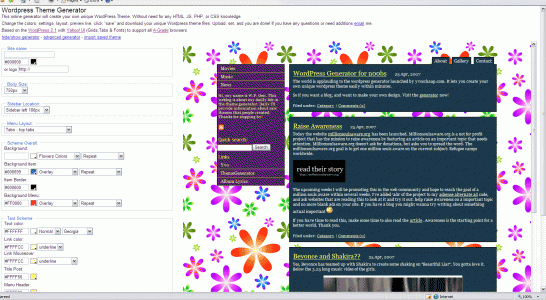
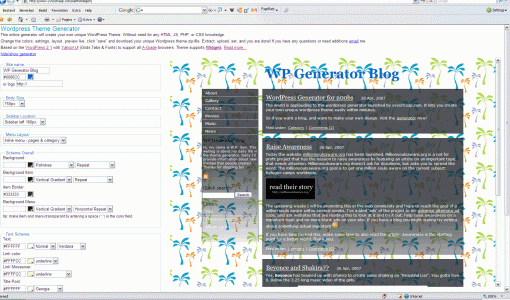
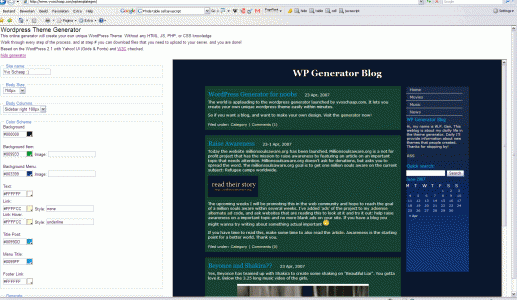
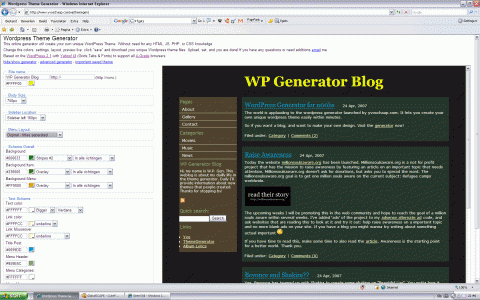
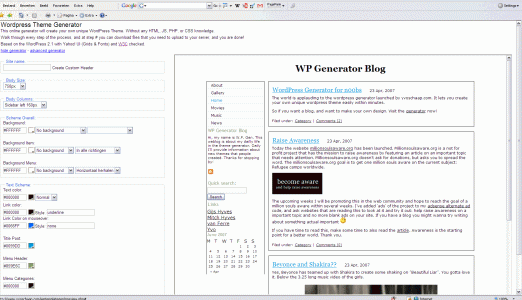

 ’ .gif files optimized for windows 95 on a 36k modem. These sites had no AJAX techniques, profiles, blogs, let alone an option to comment. The internet was a place to look around, instead of interaction.
’ .gif files optimized for windows 95 on a 36k modem. These sites had no AJAX techniques, profiles, blogs, let alone an option to comment. The internet was a place to look around, instead of interaction. 













